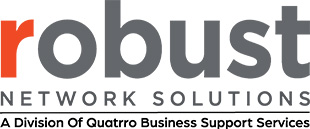Are you prepared for increased SEC scrutiny?

or Call Us on 650.458.2100 for any inquiries
Registered investment advisers (RIAs) face increased scrutiny from the Securities and Exchange Commission (SEC) regarding client communication compliance. After a recent Wall Street scandal that exposed widespread misconduct and the need for investor protection, the SEC has been coming down hard on RIAs who fail to comply with client communication monitoring regulations.
As a result, RIAs must monitor all electronic communications with clients, including text messages, WhatsApp chats, and social media chats, to stay compliant, and failure to do so can be more than a slap on the wrist. In this article, we’ll discuss the importance of client communication compliance for RIAs and provide best practices for compliance.
Increased Scrutiny on RIAs for Client Communication Compliance
In recent months, the SEC has increased its focus on the need for RIAs to comply with client communication monitoring regulations. This increased scrutiny comes in response to the Wall Street scandal, which highlighted the need for investor protection.
In September 2022, the Securities and Exchange Commission brought charges against 16 broker-dealers and an affiliated investment advisor for violating federal securities laws related to record-keeping provisions. The firms admitted to the allegations and as part of the settlement, agreed to pay over $1.1 billion in combined penalties. Additionally, the firms have committed to making improvements to their compliance policies and procedures to address these shortcomings.
This is a cautionary tale for other RIAs. “These actions deliver a straightforward message to registrants: You are expected to abide by the Commission’s record-keeping rules,” said Sanjay Wadhwa, Deputy Director of Enforcement. “The time is now to bolster your record retention processes and to fix issues that could result in similar future misconduct by firm personnel.”
RIAs are required by the SEC to monitor and retain all electronic communications with clients, no matter what application or technology they use. The SEC has issued guidelines to help RIAs understand their responsibilities regarding client communication compliance. This increased scrutiny by the SEC underscores the importance for RIAs to ensure they comply with client communication monitoring regulations.
Risks of Non-Compliance
RIAs who fail to comply with client communication monitoring regulations face significant risks. The SEC takes client communication compliance very seriously and has been known to come down hard on firms that fail to comply, as we can see from this news story. The following are some risks that RIAs face for non-compliance:
Reputation Damage
Non-compliance can damage an RIA’s reputation in the industry and among clients. A lack of compliance can lead to a perception that the RIA is not trustworthy or is not taking client protection seriously.
Financial Penalties
RIAs who fail to comply with client communication monitoring regulations can face financial penalties. The SEC can impose fines of up to $1 million per violation. And these fines can add up. Eight of the firms from last year’s case had to pay penalties of $125 million each.
Loss of Clients
Non-compliance can result in the loss of clients. Clients who value transparency and compliance may choose to take their business elsewhere if they feel their RIA is not adequately protecting their interests.
Best Practices for Compliance
RIAs must monitor and retain all electronic communications with clients to comply with SEC regulations. Here are some best practices for compliance:
Develop a Client Communication Policy
RIAs should develop a comprehensive client communication policy that outlines how the firm will communicate with clients and the procedures for monitoring and keeping electronic communications. These forms of communication include but aren’t limited to text messages, emails, website pages, instant messages, email marketing, and social media posts.
It is important to include details on what types of communication can and cannot be used to communicate with clients, how communications should be archived, and how these archives can be retrieved in this policy. Some apps and technology should be prohibited if there is no way to archive messages.
Implement Monitoring Software
RIAs should use monitoring software that can capture all electronic communications with clients. It isn’t enough to trust that the apps themselves can keep a history because many allow users to delete messages whenever they want. Others don’t provide an API to archive messages. It could require reaching out to a third-party app company to ensure there is a way to archive messages similar to the way email is archived or banning the app from being used for official firm business.
Train Staff on Compliance Procedures
RIAs should train all staff members on the firm’s client communication policy and the procedures for monitoring and retaining electronic communications. They should be familiar with the firm’s policy on client communications, should know which electronic communication channels are covered by the firm’s monitoring and retention policy, and should understand what procedures to use to monitor and archive these communications.
Conduct Regular Audits
RIAs should conduct regular audits of their client communication compliance procedures to ensure that they are effectively preventing a violation of regulations. These audits should be conducted annually at a minimum, and policies should be updated to address changes in compliance rules or business practices. Regulators expect firms to continuously fulfill and document their compliance responsibilities throughout the year.
How Robust Network Solutions Can Help RIAs Ensure Compliance
RIAs face significant risks for non-compliance with client communication monitoring regulations, including reputational damage, financial penalties, and loss of clients. To avoid these risks, RIAs must prioritize client communication compliance by developing a comprehensive client communication policy, implementing monitoring software, training staff on compliance procedures, and conducting regular audits.
Robust Network Solutions is a leading provider of regulatory compliance and cybersecurity solutions. Our solutions help RIAs monitor and retain electronic communications with clients to comply with SEC regulations. We provide secure and reliable solutions that help RIAs ensure client communication compliance and protect their clients’ sensitive information.
If you’re an RIA struggling to comply with client communication regulations, contact Robust Network Solutions today to learn more about our compliance solutions and how we can help you avoid the risks of non-compliance.
